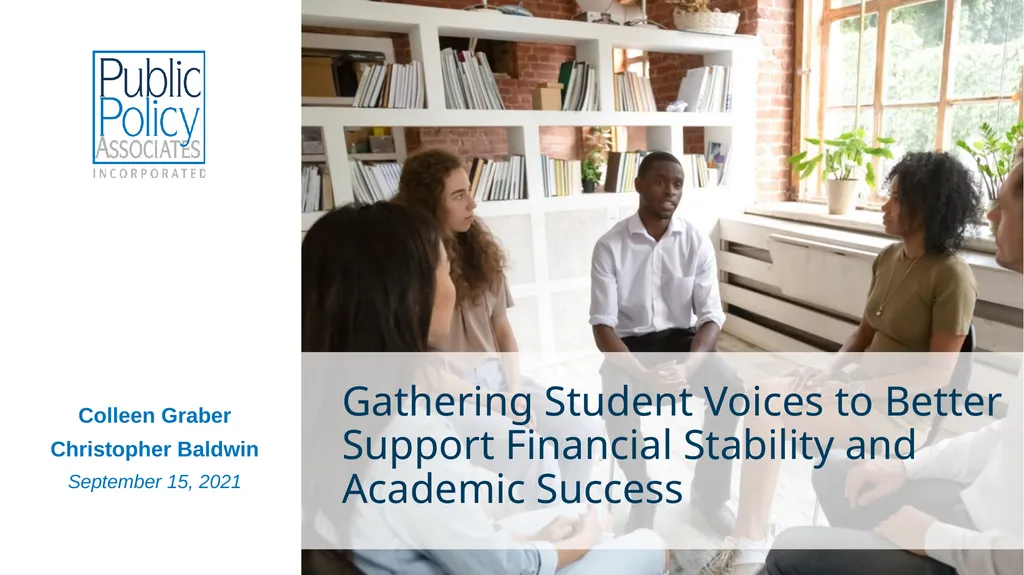
Author : sherrill-nordquist | Published Date : 2025-05-23
Description: 0 Copyright 2020 Public Policy Associates, Inc. Gathering Student Voices to Better Support Financial Stability and Academic Success Colleen Graber Christopher Baldwin September 15, 2021 1 Focus Group Results Student Focus Groups 2Download Presentation The PPT/PDF document "" is the property of its rightful owner. Permission is granted to download and print the materials on this website for personal, non-commercial use only, and to display it on your personal computer provided you do not modify the materials and that you retain all copyright notices contained in the materials. By downloading content from our website, you accept the terms of this agreement.
Here is the link to download the presentation.
"0 Copyright 2020 – Public Policy Associates, Inc."The content belongs to its owner. You may download and print it for personal use, without modification, and keep all copyright notices. By downloading, you agree to these terms.













